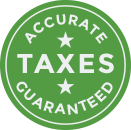How do I calculate my Self-Employment Taxes?
The Self-Employment Taxes that most members of the Clergy must pay quarterly are actually made up of two different taxes: Old-age, survivors and disability insurance (also known as “OASDI” or the more commonly used term “Social Security”) Medicare taxes OASDI taxes are calculated as 12.4% of your income. The maximum wage limit on OASDI is…
What are Self-Employment Taxes?
If you are new to Ministry, it’s possible that you’ve never heard of self-employment taxes before, much less paid them. One common mistake for new Ministers is filing the 1040 without taking self-employment taxes into account, which can result in a big bill later when your 1040 return gets corrected by IRS. When you work…
Clergy pay social security as self-employed
Determining the correct social security tax for clergy is often confusing. Clergy pay social security tax under the Self-Employment Contributions Act (SECA), not under the Federal Insurance Contributions Act (FICA). Clergy engaged in the exercise of ministry are always treated as self-employed for social security tax purposes. A congregation should never deduct FICA tax from the pay of a…
Guide to Minister’s Compensation
You may find it helpful to begin by considering the goals of a compensation package. A church should provide its staff with adequate income so that they can fulfill their roles without undue concern about current and future financial needs. Freedom from financial anxiety lets the minister focus on his or her service. It also helps your church…
What is the Difference Between FICA and SECA?
Social Security taxes or contributions are collected under the Federal Insurance Contributions Act (FICA) and the Self-Employment Contributions Act (SECA). Many people refer to contributions to Social Security as either FICA or SECA taxes. While FICA and SECA may sound similar, they are just two different ways for the government to collect Social Security and Medicare taxes. The big…
What Is Self-Employment Tax?
When a church hires a worker, one of the initial decisions that must be made is whether to treat the worker as a minister, non-minister employee or contractor. This decision may seem insignificant, but it has huge implications when it comes to payroll. Ministers have what is commonly referred to as “dual tax status.” For…
Are all ministers treated as self-employed for social security purposes?
Ministers have what is commonly referred to as “dual tax status.” For federal income tax purposes, a minister is generally treated as a common law employee. For payments into Social Security, the minister is always self-employed. This is an IRS regulation and not an election. Services that a duly ordained, commissioned, or licensed minister performs in…
Clergy Social Security Allowance
Clergy Social Security Allowance The IRS has ruled that clergy are self-employed for purposes of paying social security taxes. This means that they must pay both the employee and the employer share of social security tax under the Self-Employed Contribution Act (SECA). Churches are prohibited from paying FICA tax for clergy but are encouraged to pay…
Ministry Income – 1099 Form
Sole proprietorships are single-owner, unincorporated businesses ranging from home-based businesses to ministry income reported on form 1099. A sole proprietorship is a popular form because it’s straightforward and low cost. This entity allows you to run a one-man show with little administrative overhead. But, you become personally responsible for ministry debts and other obligations like taxes….
What is FICA?
The Federal Insurance Contributions Act (FICA) is a U.S. law requiring a deduction from paychecks and income that goes toward the Social Security program and Medicare. Both employees and employers are responsible for sharing the FICA payments. The church is required to pay Social Security and Medicare (FICA) taxes on all non-clergy employees. All nonprofits must withhold…





